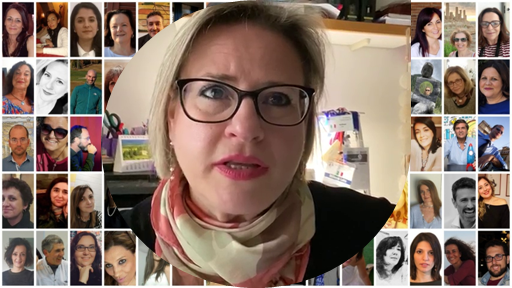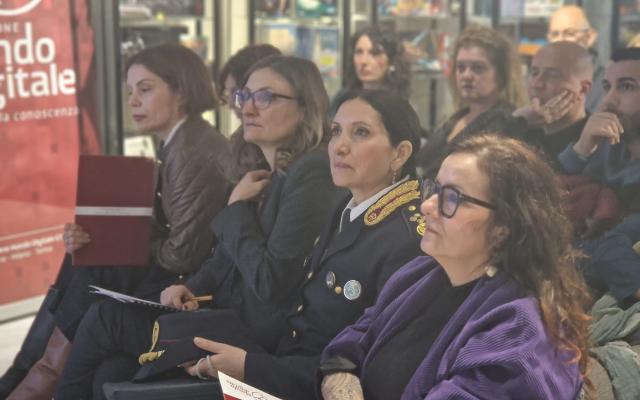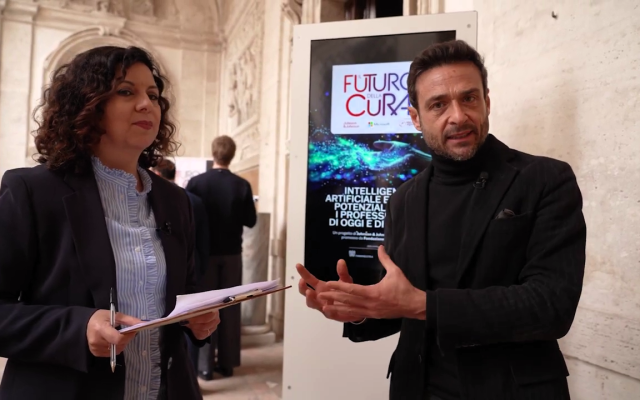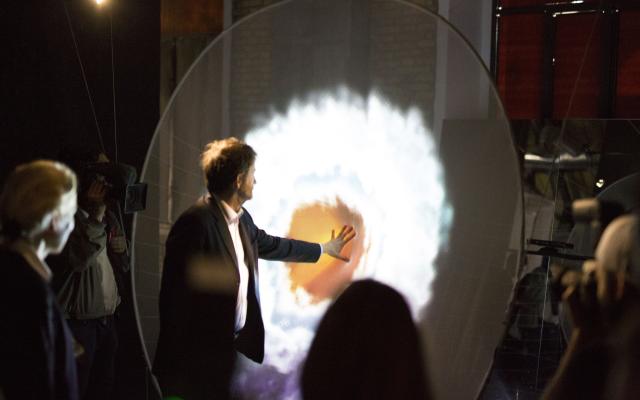This is our second weekly instalment with “Our School” teachers that we have described as i-Teachers, inclusion teachers, who work day in and day out to make sure that no one is left behind [see news: Our School].
Today, a short video and an interview with Ilaria Gaudiello will introduce us to Milena Lato, Professor of English at the Polo liceale Pietro Aldi in Grosseto.
 Milena Lato teaches English at the Polo liceale P. Aldi in Grosseto. An expert in multimedia didactic activities and digital communication, she works on on-line education and has participated as a speaker in various conferences on pedagogic technology, especially on the use of multimedia boards and Web 2.0 tools. During her teaching career, she has practiced project-based learning and has trained teachers (USR Puglia, USR Toscana, INDIRE). She is currently an export evaluator for the Erasmus Programme and European project manager, as well as author of various presentation on developing learning competences and innovative didactic constructivist methods. She actively participates in the FMD’s Network of Innovating Teachers as designer of a programme to develop oral competences through the use avatars and rubrics for peer-to-peer assessment.
Milena Lato teaches English at the Polo liceale P. Aldi in Grosseto. An expert in multimedia didactic activities and digital communication, she works on on-line education and has participated as a speaker in various conferences on pedagogic technology, especially on the use of multimedia boards and Web 2.0 tools. During her teaching career, she has practiced project-based learning and has trained teachers (USR Puglia, USR Toscana, INDIRE). She is currently an export evaluator for the Erasmus Programme and European project manager, as well as author of various presentation on developing learning competences and innovative didactic constructivist methods. She actively participates in the FMD’s Network of Innovating Teachers as designer of a programme to develop oral competences through the use avatars and rubrics for peer-to-peer assessment.

INTERVIEW
Milena, as a foreign language teacher who is working on innovative projects based on the use of digital tools and non-traditional approaches to teaching, how do you define technological innovation? What technology has helped you implement it?
Pedagogic innovation and the study of languages are both based on openness and flexibility to the changes imposed by time and the transformations taking place in social, cultural and economic environments. In order to interact we need to unite communication requirements and shared social practices. Languages allow active participation if develop learning based on true life to develop soft and professional skills.
This is why I have always tried to integrate technological tools into L2 courses. They allow us to experiment with new ways of acting and learning about things centring education around the student to promote his role in the development of knowledge.
The use of electronic tools allows us to develop knowledge in open and flexible learning environments, designed by the teacher, that provide a wide range of resources.
Technology helps to develop knowledge through problem-solving, learning by doing and reflective learning techniques that promote the activation of an important learning process that stimulates critical and creative thinking, as well as metacognitive abilities.
Knowledge acquired in this manner is both subjective and “social,” as meanings are not based in things as such, but in social practice.
You have been interested in on-line education for many years. What has changed in this field?
I have always believed that knowing how to do things and doing things well is based on the innate passion that each one of us has. So, more than change, I would speak about teachers that understand the need to improve their didactic activities through new ways of making their lessons useful and fun. This occur as soon as they become bored and unsatisfied themselves of their pedagogic practices, teachers who are curious but demotivated and teachers who are forced to learn new techniques. As Steve Jobs put it, education should be approached with a visionary outlook to always strive to find the way to learn by having fun. A relaxed mind is a mind that learns well.
As part of the Fondazione Mondo Digitale’s Network of Teachers, you are working with other teachers on learning design for an innovative English course that will be published shortly on our website. What is the key idea behind it?
The key project idea was developed when we realized that students exhibit difficulties in the dialogic use of a language. They do not communicate and are not driven to do so naturally, as happens in other European countries, where English really is a second language.
This is why we decided to raise their interest in using English through the use of digital devices that could interest them and are functional to learning. We want to teach them English by using chunks of language and game-based learning.
Therefore, videogames are used as a learning tool. Immersed in gaming dynamics, students elaborate strategies to achieve objectives, test solutions, make mistakes and correct them, and actively develop abilities and competences.
The use of game-based learning in class is markedly on the rise. The possibility of developing exciting learning experiences through the tools that students use every day to have fun provides a great stimulus. Game-based learning can be successfully used to develop competences such as critical and creative thinking, computational thought, problem-solving, teamwork skills and can also be useful for teaching core subjects.
Digital technology also incentivizes the inclusion of students with special educational needs: disabilities, specific learning disorders, as well as socio-economic, linguistic and cultural disadvantage. Inclusion, in fact, means guaranteeing the educational success of all students through an education that, in pursuing common objectives, is custom-tailored to the needs of each individual student.



